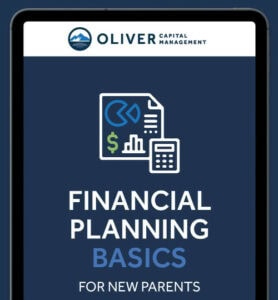Picking a sutibable investment plan for your financial future is a critical step in achieving financial security and reaching your long-term goals. Whether choosing a product (index funds, stocks, real estate, etc.) or deciding how you want that product to be taxed upon distribution, it is important to know all of the pros and cons before diving in. Let’s explore a sound way to make an informed decision based on your financial objectives and risk tolerance.

Why Invest?
Why invest? Well, investing can be a strategic way to acquire wealth and reach your long-term financial goals. Here’s why.
Wealth Accumulation
Investing helps grow your wealth over time. No amount is too small, and it’s never too late to start! That’s because even small, regular investments can lead to significant wealth accumulation in the long term through the power of compounding.
Financial Security
There’s so much power in having a financial safety net for you and your family. By diversifying your portfolio, you can reduce the risk of economic downturns and unforeseen expenses.
Inflation Protection
Investing can protect against inflation by providing returns that typically outpace the rising cost of living, preserving and increasing your purchasing power over time.
Achieving Financial Goals
Strategic investments are essential for reaching major financial milestones, such as buying a home, funding education, taking that DREAM trip or enjoying a comfortable retirement. They provide a clear path to achieving both short-term and long-term objectives.
Now, which plan is suitable for investment? Let’s dive into the options.

1. Mutual Funds
What is a mutual fund? Mutual funds pool money from multiple investors to invest in a diversified portfolio of assets, managed by professional fund managers.
The benefits are numerous. First and foremost, mutual funds help reduce individual investment risk through diversification and provide access to professional management. They also work for a variety of risk tolerances.
However, downsides include management fees and other expenses can reduce returns. The performance will also depend on the skill of the fund manager.
2. Exchange-Traded Funds (ETFs)
ETFs are investment funds that trade on stock exchanges, similar to individual stocks. They typically track an index like the S&P 500. These ETFs can be bought and sold throughout the day, making it one of the best for investments.
Benefits include diversification, similar to mutual funds. However, unlike mutual funds, ETFs can be traded throughout the day – and generally have lower expense ratios compared to mutual funds, making it one of the best for investing.
ETFs can be subject to market fluctuations, affecting their value. Additionally, trading costs may be incurred with frequent transactions. ETFs can also be subject to tracking errors, where the ETF may not perfectly replicate the index performance.
3. Individual Stocks
Investing in individual stocks means buying shares of ownership in specific companies. When most people think of investing, they think of individual stocks. When you purchase individual stocks, you’re buying into a company – and the profit comes from dividends and increased stock value.
Benefits of individual stocks include high return potential (from great stock picks), dividends from direct ownership, and greater control over investment decisions.
Likewise, the risks include high volatility – which means individual stocks may or may not be a great pick for people with low-risk tolerance. Anyone purchasing individual stocks will need to do extensive research and analysis. Individual stocks also have less diversification, exposing investors to company-specific risks.
4. Retirement Accounts
Retirement accounts, such as 401(k) plans and Individual Retirement Accounts (IRAs), are designed specifically for retirement savings and offer various tax advantages.
There are two primary types of retirement accounts:
- 401(k) Plans: Employer-sponsored retirement accounts.
- Individual Retirement Accounts (IRAs): Personal retirement savings accounts.
Benefits of retirement accounts are clear: the owner takes advantage of tax-deferred growth or tax-free withdrawals (depending on the type of account). In addition, employer contributions in 401(k) plans can enhance savings. Within these accounts, there are a wide range of investment options.
Risks include early withdrawal penalties and taxes if funds are accessed before retirement age. In addition, contribution limits restrict how much can be saved annually. These accounts have Required Minimum Distributions (RMDs) as well, which means the withdrawal must be taken at a certain age, impacting retirement strategy.

Choosing an Investment Plan for You
Which plan is best for investment? There are numerous options available – it can be challenging to determine which plan suits your individual needs. Consider the following:
Risk Tolerance
What is the amount of risk you’re willing to take on? Risk tolerance involves understanding your ability to withstand market fluctuations and potential losses.
If you are comfortable with high volatility and potential for higher returns, you might consider individual stocks or certain ETFs. If you prefer stability and lower risk, mutual funds or diversified retirement accounts might be more suitable.
Investment Goals
Clearly defining your short-term and long-term financial objectives is critical for success. Are you saving for retirement, funding education, or looking to build wealth? Your goals will significantly impact your investment choices.
For example, retirement accounts like 401(k) plans or IRAs are ideal for long-term retirement savings due to their tax advantages.
Time Span
What sort of timing are you working with? How long will the money be invested, before you need access to the funds?
If you have a long time frame, you can afford to take more risks and potentially achieve higher returns. For short-term goals, safer and more liquid investments, such as CDs or bank accounts, may be more appropriate.
Diversification
Diversification is key to managing risk effectively. Spreading your investments across various asset classes can help mitigate the impact of market volatility. For example, Individual stocks require you to diversify on your own, which can be more challenging but also more rewarding if done correctly.
Consulting a Financial Advisor
Do you need extra help achieving your financial goals? For many clients, investing is a tricky step. Seeking personalized advice from a financial advisor can help ensure your funds are invested according to your goals and risk tolerance.
A professional can help you create a tailored investment strategy that aligns with your financial goals, risk tolerance, and time horizon. At Oliver Capital Management, our experienced advisors are dedicated to helping you navigate the complexities of investing and develop a plan that works best for you.
Conclusion
Choosing the most effective investment plan can help jumpstart your path to success. Looking at your risk tolerance, investment goals, and diversification needs, among other elements, can help you make better decisions more aligned with your financial future.
Looking for help getting started? The process doesn’t have to be overwhelming! At Oliver Capital Management, we’re here to help with personalized guidance and tailored strategies. Get in touch today for experienced advice to set you on the path towards financial freedom.
The opinions expressed and material provided are for general information, and should not be considered a solicitation for the purchase or sale of any security. Past performance is not a reliable indicator of future results. All investing involves risk including the possible loss of principal. No strategy assures success or prevents loss.
Diversification is a strategy designed to help manage investment risk. It does not guarantee a profit or protect against investment loss in declining markets.
Dividends are not guaranteed and can be reduced or canceled at any time.
6805914RG_Jul26
